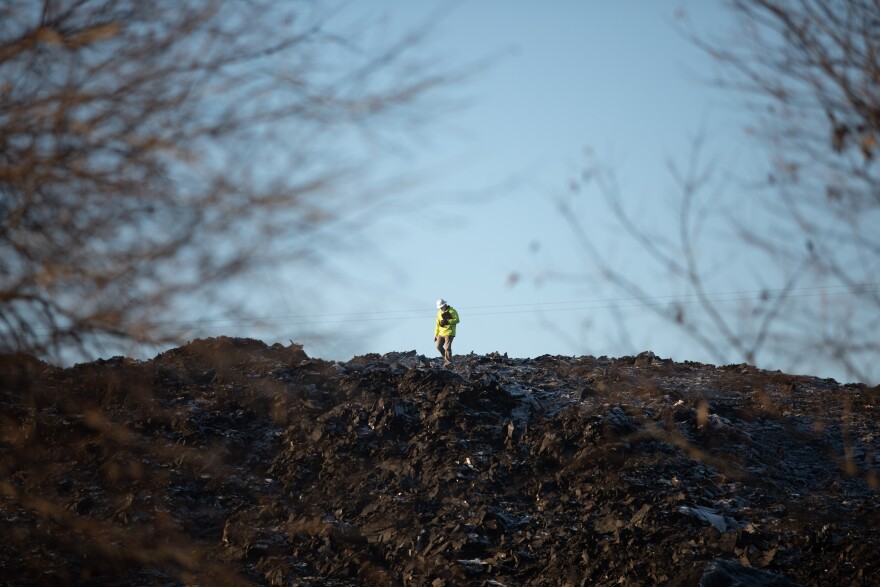Floral Farms resident Cecilia Del Toro Garcia said she is devastated to learn that the soil next door to her house is highly contaminated with lead.
“Me da mucha pena. Por que estabamos tan ilusionados,” Gracias said in Spanish. I am so sorry this is happening, because the community was so excited.
Garcia thought she had seen some light after the 100,000-ton pile of shingles and roofing materials, known as Shingle Mountain, was removed earlier this year.
But an environmental assessment completed in early June by Modern Geosciences found lead levels were three times higher than the minimum required to clean up the toxic waste dump.
Garcia said all she could think about was the park the Floral Farms neighborhood thought could be created now that the mountain of trash was gone.
“La ciudad nos iba a poner un parque. Pero ahora con eso del plomo no se si vaya haber una excusa para decir que no se puede,” Garcia said in Spanish. The city might have given us a park, but now with the lead, I don't know if there is going to be an excuse to say that it can't be done.

Garcia's neighbor, Marsha Jackson, is alsoconcerned about what it means.
“We want the property tested," Jackson said. "We have animals, we have kids, we have ourselves and our family.”
Jackson, who's a long-time advocate, has attributed the dry cough and breathing problems she has to the contamination next door to her home. She is asking for the city to clean up the neighborhood.
In early July, Dallas City Manager T.C. Broadnax released a statement stating “groundwater samples support that arsenic and lead from the soil has not affected the groundwater.”
In the same statement Broadnax also wrote that the lead soil concentration on the site is within the threshold that the Texas Commission on Environmental Quality (TCEQ) concurrency levels ask for. The former Shingle Mountain site is zoned for industrial development.
But environmental activists say this is one example of how zoning impacts the health of those living near these certain types of industries.
The city said further action is required at the former Shingle Mountain site to get the lead levels regulated for residential land use, but that it couldn't address the lead levels or further cleanup until it took over ownership of the site.

According to an email from council member Tennell Atkins on July 16 the transfer of ownership was completed.
"I am pleased to announce that the City of Dallas has acquired the former Blue Star Recycling property owned by CCR Equity One LLC at 9505 S. Central Expressway," the statement said. "By taking ownership, the city can control the site use and work with the Texas Commission on Environmental Commission (TCEQ) on next environmental steps.”
When KERA reached out to the city about this story, a representative said they had no updated comment about the situation and referred to the July comment from the city manager. Council member Tennell Atkins did not respond to requests for additional comments.
Genaro Viniegra, co-chair of Neighbors United, a residential association for Floral Farms, said expressed frustration at the neighborhood's ongoing fight for rezoning.
“Mucha gente se siente atacada. No es justo. Ahorita la lucha es el código y zonificación del área, que la mantengan en agricultura,” Viniegra said in Spanish. Many people feel attacked. It’s not fair and we will continue fighting for the rezoning of the area.
Got a tip? Alejandra Martinez is a Report For America corps member and writes about the impact of COVID-19 on underserved communities for KERA News. Email Alejandra at amartinez@kera.org. You can follow Alejandra on Twitter @alereports.
KERA News is made possible through the generosity of our members. If you find this reporting valuable, consider making a tax-deductible gift today. Thank you.







